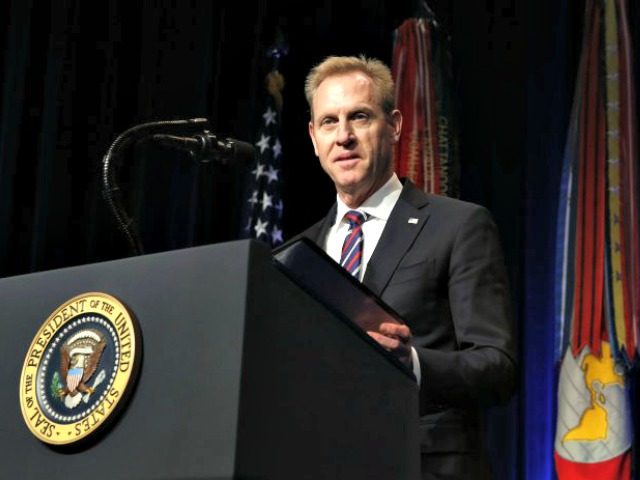M. K. Bhadrakumar |
Amidst the contradictory voices from within the US administration regarding Syria over the weekend – American priority in the war (ISIS or regime change) – it was time someone authoritative stepped in to clear the confusion. Who else but the US Secretary of Defence General James Mattis could do that? So, Mattis held a special press conference at the Pentagon last night.
Russian warning to the US
“Such provocations are being prepared in other parts of Syria, including in southern suburbs of Damascus, where they (the US) are planning to plant certain substances and accuse Syrian authorities of using them.”
– Vladimir Putin
Evidently, the extraordinary warning given by Russian President Vladimir Putin in the Kremlin (in the presence of a prominent visiting western leader: President of Italy Sergio Mattarella) where he drew a stunning comparison in apocalyptic terms with the catastrophic US invasion of Iraq in 2003, prompted Washington to scramble, especially since state secretary, Rex Tillerson, had just landed in Moscow on an overnight diplomatic mission of high importance.
Read more: US Secretary of State’s visit to Moscow: a new friendship or false dawn?
But first, this is what Putin had said, pared to the bone, regarding Syria: “This reminds me very much of the events of 2003… The exact same thing is happening now… We have information from a variety of sources that such provocations (I cannot find another word for this) are being prepared in other parts of Syria, including in southern suburbs of Damascus, where they are planning to plant certain substances and accuse Syrian authorities of using them.”
Mattis’ clarification
Putin, so far, has not had any telephonic contact with Assad after the chemical attack in Idlib, 8 days ago, while Iranian president Hassan Rouhani held a conversation with Assad and thereafter phoned up Putin.
The US has incontrovertible proof that Syrian government undertook the chemical attack in Idlib on April 4, which prompted the “measured military response”.
The US is not looking for a confrontation with Russia. In fact, care was taken to ensure that there was no Russian casualty in the US missile attack.
The US’ military policy in Syria has not changed. The ISIS’ defeat remains the priority. The US missile strike underscored to Assad that any future chemical attacks will not be tolerated.
Available information doesn’t suggest any Iranian role or Russian complicity in the chemical attack in Idlib.
“It was very clear that Assad regime planned it, orchestrated it, and executed it. And beyond that, we can’t say right now. We know what I just told you. We don’t know anything beyond that.”
– General James Mattis
Read more: Malaysian Hacker reveals information: “Chemical Attacks in Syria were staged”
Washington wants Moscow to drop supporting Asaad
Clearly, Washington is piling pressure on the Kremlin to dump Assad. A hugely significant detail must be noted in this connection: Putin, so far, has not had any telephonic contact with Assad after the chemical attack in Idlib 8 days ago, while Iranian president Hassan Rouhani held a conversation with Assad and thereafter phoned up Putin. Is Tehran doing some sort of fire-fighting? A meeting has been scheduled this week in Moscow between the foreign ministers of Russia, Iran, and Syria.
“I recommend Assad be rather cautious about violating international law with chemical weapons. I suppose that could be considered a red line.”
– General James Mattis
Indeed, Mattis sought to give the impression that he was calming the Russian nerves. This is how he handled that part:
I don’t believe I’ve talked about red lines. I generally shy away from it myself. I recommend Assad be rather cautious about violating international law with chemical weapons. I suppose that could be considered a red line. So I won’t argue the point. It will not spiral out of control. As you know, Secretary of State Tillerson is in Moscow. We maintain communications with the Russian military and with the diplomatic channels. It will not spiral out of control.
Well, I’m confident the Russians will act in their own best interests, and there’s nothing in their best interests to say they want this situation to go out of control.
Read more: With Syrian attacks, Trump launches his Queen on the chessboard
Syria: Spiral out of control?
Mattis implied, perhaps, that ‘all options are on the table’.
Simply put, it is an assessment as well as a warning. Mattis sought to convey that it is in mutual interests that tensions over Syria remain under check. Two, while it is perfectly understandable that Russia acts in self-interests, Syrian situation should not “spiral out of control.” Three, Tillerson’s talks in Moscow aim at confidence-building.
Of course, Mattis said not a word about the specific allegation Putin had made to the effect that the US could be setting up new scenarios to justify more attacks on Syrian government forces. The wily general simply kept mum on this delicate issue. Mattis implied, perhaps, that ‘all options are on the table’.
M. K. Bhadrakumar has served as a career diplomat in the Indian Foreign Service for over 29 years, with postings as India’s ambassador to Uzbekistan (1995-1998) and to Turkey (1998-2001). He writes extensively in Indian newspapers, Asia Times and the “Indian Punchline”. This piece was first published in Indian Punchline. The views expressed in this article are the author’s own and do not necessarily reflect Global Village Space’s editorial policy.













